Employment Disputes, “Egregious” Letters & Editorial Errors: Inside BBC Turmoil Over Israel-Gaza
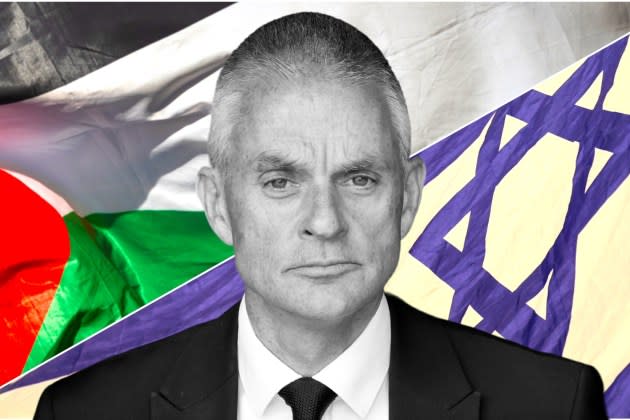
BBC boss Tim Davie hosts regular talent events to charm the people who populate his airwaves, but it’s not often that talk turns to geopolitics. That changed in January when a list of stars, including Radio 2 presenter Vernon Kay, gathered and the conversation crackled with a sound that has now become familiar to Davie: unease over Israel-Gaza coverage.
The discussion was said to be diplomatic and Davie receptive, but there were misgivings about the BBC’s output since October 7, when Hamas raided Israel and killed around 1,200 people, while taking more than 200 hostages. It will not have surprised Davie, but it may have cemented any sense that the Israel-Gaza crisis would be a theme of 2024. Six months on, the mood at the BBC is so fraught, some suggest that relations between colleagues, and the corporation’s reputation among Jewish and Muslim viewers, will never be the same again.
More from Deadline
Jerry Seinfeld Ridicules Pro-Palestinian Heckler During Comedy Show In Australia
Donald Trump's Case Against State of Georgia To Be Spotlighted In BBC Feature Doc
Deadline has spoken to several BBC insiders and people close to the British broadcaster to test the tumultuous atmosphere eight months into a devastating period of fighting between Israel and Hamas. These conversations reveal how unrest has spilled over into a bitter employment dispute, tense meetings, and what insiders described as “egregious” letters to BBC management.
We have also analyzed mistakes and editorial investigations since October 7 to establish whether BBC output appears to be leaning in a certain direction. The data is not conclusive, but the BBC has apologized more for perceived anti-Israel errors, while the solitary impartiality ruling against the broadcaster concerned a radio show that gave the uncontested impression Israel was committing “genocide” in Gaza.
Tensions have touched nearly every corner of the BBC, with the broadcaster’s news, television, radio, and sport divisions all having to contend with discontent. But amid the turmoil, there remains a sense that the majority of staff are simply getting on with the day job, dedicating great care to covering a difficult story without fear or favor.
A BBC spokesperson says: “The BBC holds itself to the highest standards and is dedicated to providing impartial reporting for audiences in the UK and across the world, working within our published editorial guidelines. In addition, the welfare of our staff is paramount, and we have well-established and robust processes in place to handle any issues, concerns or complaints raised with us, along with a range of support available to anyone who may need it.”
Former TV Chief Turns On BBC
Criticism of the BBC’s output started almost immediately after October 7 — and from an unlikely source. A day after Hamas attacked Israel, Danny Cohen, the BBC’s well-regarded former television chief, lamented in The Daily Telegraph that the corporation was failing to describe Hamas as a terror group.

Cohen, who is Jewish, was one of the first to make this argument and it took root in the highest political circles. Prime Minister Rishi Sunak was among those who scolded the BBC for choosing to describe Hamas as “militants.” The BBC has refused to bow to pressure.
Cohen has written a further 21 columns in The Telegraph, a newspaper that is famously hostile to the public broadcaster. He has become a main character in the debate, arguing that there is “overwhelming” evidence of anti-Israel bias at the BBC and that its “deep-rooted prejudice” is seeding antisemitism.
Cohen, who now runs Access Entertainment, a financier that has backed films including Oscar-winner The Zone of Interest, had genuine affection for the BBC during his eight years at the broadcaster. He did not leave in acrimonious circumstances in 2015 and his legacy lives on after commissioning series including Call The Midwife and Happy Valley. In short, his intervention symbolizes how disquiet over Israel-Gaza has shaken even the most ardent supporters of the BBC.
It is perhaps a surprise then that the BBC and Cohen have not met to discuss his concerns. Sources close to Cohen say he has not heard from former colleagues, including Davie and content chief Charlotte Moore. BBC sources say he was offered time with news chiefs, but a meeting is yet to be agreed.
Some BBC executives think Cohen’s attacks have been unreasonable. “He’s made himself extremely unpopular within the BBC,” says one well-placed senior executive. “He’s not given recognition to the complexity of covering this story, and the fact that 99% of the output is not being complained about. It seems pretty extraordinary to me that he would want to damage the BBC in this way.”
In a statement, Cohen says it is “weak” to blame “consistent failures of impartiality” on complexity, arguing that the BBC has used “dubious sources” in its reporting and employed journalists who celebrated October 7. “Rather than trying to excuse it all away, the BBC would better serve the public by actually accepting it has a major problem and dealing with it,” he tells Deadline. “I’m not concerned if events since 7 October mean I’m unpopular with some at the BBC. The impact of the BBC’s failures of impartiality on the safety and wellbeing of Britain’s Jewish community is what matters.”
He adds: “I note that the briefing against those who have spoken out against the BBC’s impartiality failures is typically from anonymous sources. The lack of public accountability taken by the BBC’s senior executives on these issues of bias suggests that they are all too aware that they are on shaky ground and do not want to answer difficult questions in a transparent way.”
Cohen is far from alone in feeling this way. Senior Jewish industry figures have spoken out, even if has meant antagonizing an important customer. This is the case for Leo Pearlman, managing partner at producer Fulwell 73, who is juggling conversations about the Gavin & Stacey Christmas special with lengthy LinkedIn posts interrogating the broadcaster. He recently accused Gary Lineker of spouting “insidious antisemitic tropes” after the BBC’s highest-paid presenter said there was “heavy lobbying on people to be quiet” about Israel. Given Lineker remains central to its Euro 2024 coverage, the BBC appears to disagree. Lineker’s agent did not respond to a request for comment.

Jewish industry figures are regularly in contact with each other and have coordinated efforts to pressure the BBC. More than 100 people signed an open letter this month condemning flagship cricket show Test Match Special for hiring former Scottish player Qasim Sheikh after he posted a picture that likened Benjamin Netanyahu to Hitler. Signatories included Neil Blair, J.K. Rowling’s long-time agent and an executive producer on her BBC drama series Strike, and Jonathan Shalit, agent to BBC stars including Strictly Come Dancing judge Shirley Ballas. Sheikh apologized and deleted his messages.
Symbolic Employee Dispute
We can also reveal that Jewish industry figures have supported a BBC employee who is entangled in a rancorous dispute with their manager, a senior editorial figure, over antisemitism allegations. Deadline is not naming those involved.
The outcome is expected in the coming weeks in what could be a significant flashpoint in the BBC’s approach to employee unrest over the Middle East. The complainant’s allies argue it is evidence that the BBC is tolerating perceived anti-Jewish discrimination in a way that the corporation would not if it was being targeted at other minorities. This sense of “Jews don’t count,” a phrase popularized by comedian David Baddiel, is palpable among some. There is also shock that the individual had to raise a grievance, rather than the BBC proactively investigating.
The BBC does not comment on individual staff matters, but says it has “robust” processes to handle complaints. The BBC did take swift action on antisemitism in February, firing BBC3 scheduler Dawn Queva over social media posts that included slurs such as “holohoax.” Soon after, Davie sent an all-staff email acknowledging “antisemitic behavior by people who worked with us.”
The manager at the center of the recent dispute is understood to have their own support network, some of whom have accused the other side of pushing an agenda. A person familiar with the matter sums up the mood like this: “It’s caused a deep rift among friendships and among people who were allies with each other.”
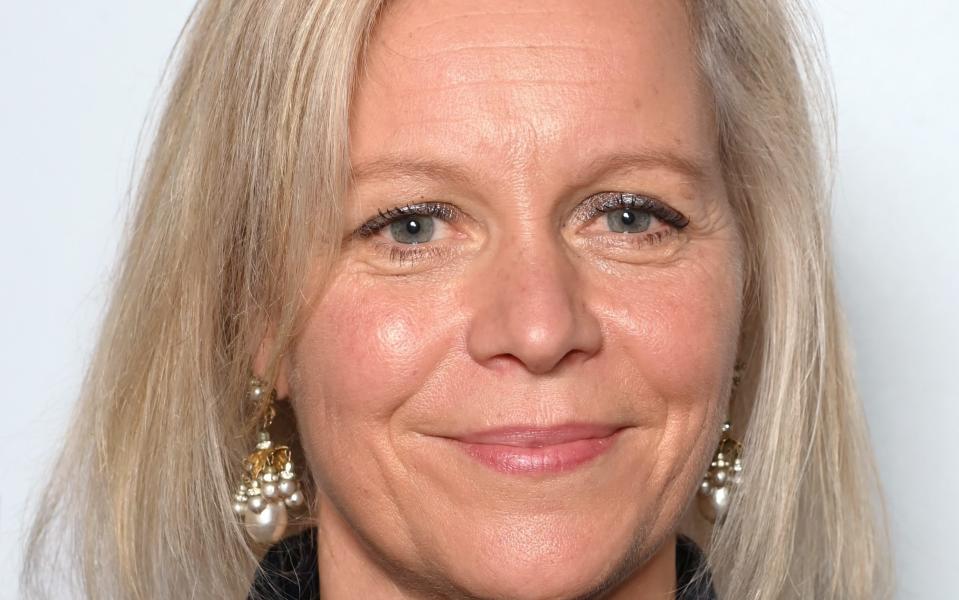
Jewish and Muslim staff networks were established last October, with content boss Moore acting as executive sponsor. “Like most organizations, the leadership team talk to staff on a range of issues on a regular basis,” says a BBC spokesperson.
A senior BBC journalist, who is not Jewish or Muslim, argues that managers may be listening but they are not hearing. “There’s a group of people in editorial positions who don’t understand the depth of feeling in Israel and among Jews more widely,” they say. “I think the damage done to relationships is pretty serious and long-term.”
Concerns Over Palestine Coverage
In January, Muslim employees met with director general Davie and Uzair Qadeer, the BBC’s chief people officer. Two observers say the BBC proactively gathered the employees to hear their views and understand more about their wellbeing. People were raw in sharing their experiences, with one journalist, stationed outside of the UK, telling the group that they were plotting their exit from the BBC because of anger over output.
There are misgivings about the tone of coverage and dehumanizing Palestinian deaths in Gaza (estimated to be 37,000 by Hamas-run authorities), particularly in the context of the vivid human stories of Israeli hostages. The Times has reported on employees “crying in toilets” amid fears that the BBC is “treating Israeli lives as more worthy than Palestinian lives.”
An analysis of 4,600 online BBC News stories, visualized by Pulitzer-winner Mona Chalabi, found that Palestinians were described as dead bodies, while Israelis were documented as fathers, mothers, daughters, or sons. Jonathan Munro, BBC News’ deputy CEO, recently acknowledged that the “asymmetric” nature of the war has made it difficult to cover impartially. Top BBC journalists have demanded Israel and Egypt provide foreign media with “unfettered access” to Gaza.
There is also concern that questioning the Israeli government will lead to the charge of antisemitism. One Muslim employee, who has had an unblemished career, says they had been accused of being prejudiced towards Jewish people without justification. “All people are doing is saying that the BBC is failing when it comes to fairness and impartiality, and we need to be more robust when it comes to confronting this subject. Doing the job of journalism around Israeli policy is not in any way antisemitic,” this person says. “A lot of people are at a breaking point. They really feel that they’re being censored.”
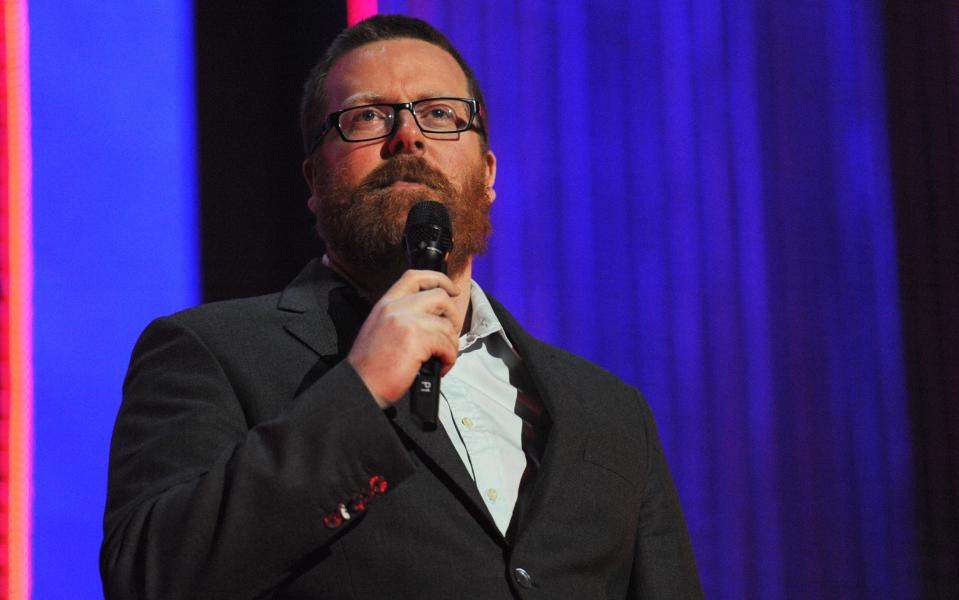
Comedians Frankie Boyle and Guz Khan appear on the BBC (the latter in his comedy Man Like Mobeen) and have questioned its impartiality on Palestine. Boyle rebuked the BBC for headlining online news stories with “rapidly debunked lies” from the Israel Defense Forces. Khan took issue with an episode of Question Time, in which newspaper columnist Melanie Phillips denied evidence about famine in Gaza by encouraging people to view unverified images of “stocked food markets” on YouTube. The BBC says Phillips was robustly challenged by presenter Fiona Bruce.
Some argue that the UK’s conservative press has intensified a fear of speaking out. Newspapers including The Daily Mail and The Daily Telegraph are broadly sympathetic to the Israeli cause and some of the BBC’s Muslim employees believe that any divergence from this perspective could lead to them being vilified in negative headlines. The Daily Telegraph has named BBC employees accused of breaking impartiality rules, though this has been in connection with more serious incidents, such as BBC Arabic journalists tweeting about a “morning of hope” soon after October 7. Davie has said that the BBC Arabic social media activity was “unacceptable.”
Another respected Muslim BBC employee says there is a “knife edge” in the debate and people have to pick their way through editorial discussions with great care. This person did not even wish to be associated with attending certain meetings for fear it would ally them with one side of the argument. The insider explains: “I know that all my Jewish friends — who I care about very deeply and some of whom I’m close enough to talk to about these difficult issues — will feel I’m saying one thing to them, while [at the same time] I could be portrayed as pro-Hamas, even though it’s obviously not true.”
Others have not been so diplomatic. Not long after the outbreak of war, a group of employees circulated a letter to the BBC’s most senior leaders, including Davie, that was considered inflammatory by recipients. They accused the broadcaster of “aiding and abetting genocide,” according to two people familiar with the missive. It was shared more widely on internal distribution lists, with Jewish employees taking “extreme offense” to the language used, according to sources.
“It was extraordinarily egregious,” says a non-Jewish insider who read the letter. Another recalls senior management being “quite shaken” by the accusations: “They were properly outraged that [people thought it was] acceptable to make these kinds of incendiary and unpleasant remarks about colleagues and send them around the BBC.”
The BBC says: “Regular feedback and robust editorial discussions are central to our journalism at the BBC and essential for our commitment to impartiality. While we don’t comment on specific internal emails, we do expect our staff to use the appropriate routes.”
BBC Apologies & Complaints
So is there evidence to support competing accusations of bias?
The example the BBC often cites is audience complaints, with executives briefing that there is parity between the two sides. As of March, the BBC had around 8,000 complaints that were evenly split between accusations of pro- and anti-Israel bias. David Jordan, the BBC’s director of editorial policy and standards, told MPs it reflected the “division of opinion in the country.”
Eight months into the conflict, there are other ways to analyze the BBC’s output. The corporation has been forced to apologize for eight editorial errors since October 7, five of which may be considered anti-Israel or pro-Palestine, with the other three in the other direction. These mistakes are keenly felt by both sides and have been weaponized to accuse the BBC of partisanship, even though the corporation protests that they are nothing more than errors.
The BBC apologized this week for a Radio Scotland phone-in that allowed a pro-Palestine campaigner to mischaracterize an International Court of Justice ruling and argue that genocide is “plausibly” being committed in Gaza. Two weeks earlier, BBC London news apologized for wrongly describing a Palestine protest as a “vigil” at a cinema screening of a film documenting Hamas’ Nova festival massacre. One person says this was enough for some Jewish people to ditch their license fee. A BBC insider argues that the error is better explained as “incompetence” rather than conspiracy.
Palestinian sympathizers have seized on other missteps to draw their own conclusions about a perceived pro-Israel conspiracy. This includes the BBC apologizing after the news channel described people taking part in marches in support of Palestine as backing Hamas, and for repeatedly overstating the October 7 death toll. BBC News added a correction to at least 64 online stories, saying it had incorrectly interpreted Israeli data.
The BBC’s Executive Complaints Unit (ECU), which is tasked with investigating audience concerns over bias and accuracy, has ruled on 52 pieces of content related to the Middle East conflict since Hamas attacked Israel. Exactly half of these complaints concerned allegations of pro-Israel or anti-Palestine bias, while the other half accused the BBC of partisanship in the opposite direction. Of these 52 investigations, only one has been upheld: a ruling against a February 20 item on Radio 4’s World at One, which gave an “uncontested impression that Israeli actions in Gaza amounted to genocide.” The ECU said the show “fell below the BBC’s standards of impartiality” by failing to challenge this impression or offer an alternative viewpoint.
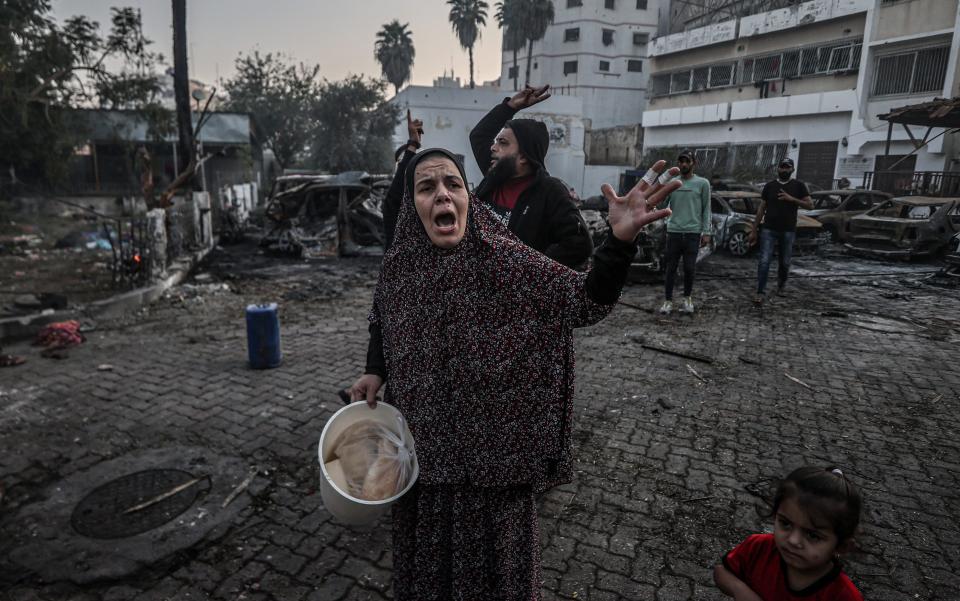
Prior to the World at One ruling earlier this month, the closest the ECU had come to admonishing the BBC was over an October 17 episode of BBC News channel show The Context, during which reporter Jon Donnison speculated that Israel was behind the Al-Ahli Arab Hospital bombing last October. The ECU said it considered the matter “resolved” after the BBC admitted it was “wrong to speculate” on the devastating blast and apologized.
There is some evidence of mixed messages on editorial complaint rulings. When the BBC News channel dedicated hours of coverage to Israel’s arguments against genocide in the International Court of Justice, viewers complained that equal coverage was not afforded to South Africa’s submission on Israel’s intent to “destroy” Palestine. The ECU ruled in February that the BBC provided sufficient coverage of South Africa’s arguments elsewhere as the news channel focused on the UK’s landmark Post Office inquiry. But soon after, editorial policy chief Jordan appeared to contradict the ECU, saying there was a feeling at BBC News that it was a “mistake in not making the two live coverage events similar or the same.” Jordan told lawmakers that if “absolute equivalence” is not afforded on the Israel-Gaza story, it can lead to suspicions of deliberate bias — even when this is not the case.
The BBC will point to relative parity in ECU investigations, and a lack of rulings against the corporation, as evidence that it is getting its coverage right most of the time. Others are not so convinced. A senior industry executive, who is Jewish, tells Deadline that it is “risible” that the ECU has upheld so few complaints. “It’s just absurd when you’re marking your own homework like that,” they add. A BBC insider points out that complainants can take their concerns to media regulator Ofcom after exhausting the corporation’s processes.
Alongside complaints handling, the BBC is currently reviewing its editorial guidelines, which could lead to a rethink of how Hamas is defined. The process includes a public consultation and was expected to conclude in the fall, but could be delayed by the election. For now, the BBC is sticking to its guns.
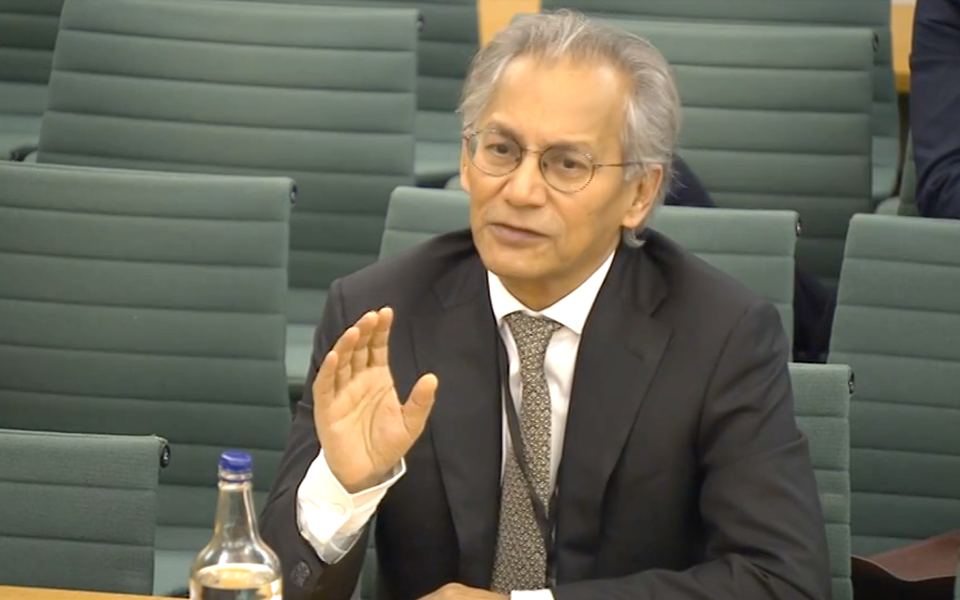
Giving evidence to lawmakers in December, Samir Shah, the BBC’s new chairman, acknowledged that impartiality is being tested because “emotions are very high.” But he has little patience for the old BBC adage that if both sides are criticizing output, it’s probably picking the right path through a story. “It is alright as a sound bite, but really the ambition for BBC journalists should be that neither side criticizes us,” Shah told the Culture, Media and Sport Committee. A senior presenter agrees, arguing that BBC boss Davie has put trust, transparency, and impartiality at the center of his agenda, meaning there is “no hiding” behind “on the one hand, on the other.”
A second seasoned presenter argues: “The truth is, most people actually involved in coverage spend a lot of time agonizing over every possible angle in a way that no one in newspapers does. That’s what I see around me every day. Most of the time people are approaching it as journalists rather than on the basis of a faith or racial identity.”
The Israel-Gaza crisis will likely leave an indelible mark on the BBC, but there are those who hope that common bonds will see the corporation through the turmoil. It could be critical to keeping Jewish and Muslim viewers tuned in to the UK’s national broadcaster.
Best of Deadline
'Presumed Innocent' Release Schedule: When Do New Episodes Air?
Hollywood & Media Deaths In 2024: Photo Gallery & Obituaries
2024-25 Awards Season Calendar - Dates For Oscars, Emmys, Grammys, Guilds & More
Sign up for Deadline's Newsletter. For the latest news, follow us on Facebook, Twitter, and Instagram.


